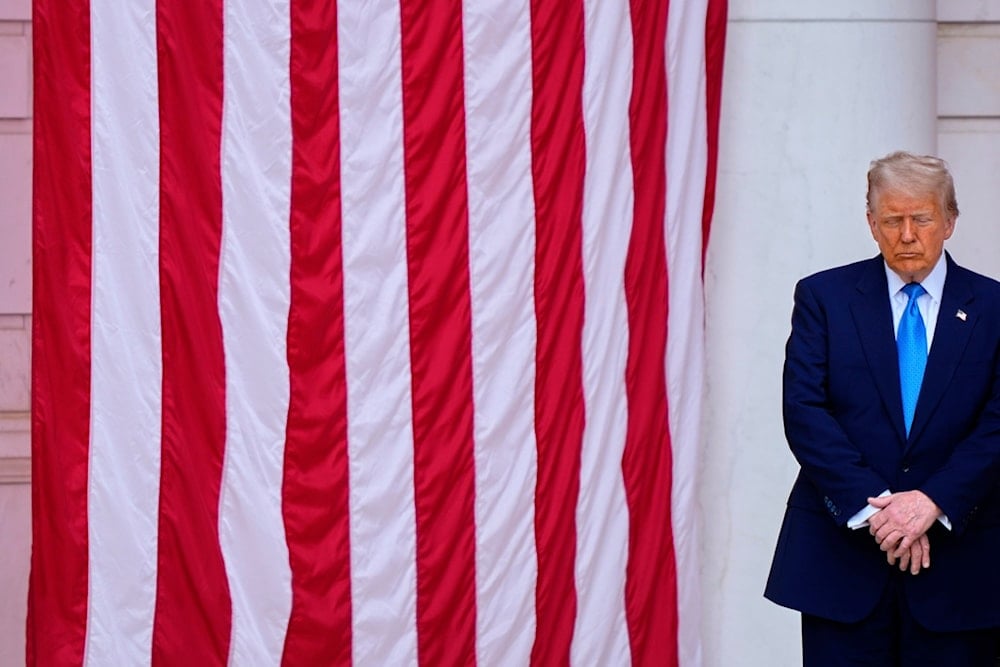Court revives tariffs as legal battle over Trump's powers grows
The legal tug-of-war over the tariffs reveals persistent concerns about the expanding scope of presidential authority in shaping US trade policy.
-

President Donald Trump bows his head in prayer with others, before delivering the Memorial Day Address at the 157th National Memorial Day Observance at Arlington National Cemetery, Monday, May 26, 2025, in Arlington, Va. (AP Photo/Julia Demaree Nikhinson)
A federal appeals court on Thursday reinstated a set of tariffs imposed by US President Donald Trump, temporarily reversing a lower court ruling that had blocked them just one day prior. The move sustains a core element of Trump’s protectionist trade agenda, even as legal challenges continue to mount.
The US Court of International Trade had ruled Wednesday that Trump exceeded his executive authority by applying sweeping tariffs under the International Emergency Economic Powers Act (IEEPA), a statute typically reserved for national security emergencies.
The court declared the measures "will be vacated and their operation permanently enjoined," effectively invalidating a 10% blanket tariff on most imports and a 25% duty on specific goods from Mexico and Canada. However, the court upheld tariffs on automobiles, auto parts, steel, and aluminum.
The decision was widely seen as a check on the broad use of presidential emergency powers for trade purposes, a hallmark of Trump’s first term in office. Business coalitions and legal scholars have argued that such actions should require congressional oversight.
In a swift response, the US Court of Appeals for the Federal Circuit granted a temporary administrative stay, halting the lower court's ruling while it reviews the case.
"It is ordered that: ... The request for an immediate administrative stay is granted to the extent that the judgments and the permanent injunctions entered by the Court of International Trade in these cases are temporarily stayed until further notice while this court considers the motions papers," the order stated.
Tariff showdown
The legal tug-of-war over the tariffs reveals persistent concerns about the expanding scope of presidential authority in shaping US trade policy, especially through tools like IEEPA that allow the executive branch to circumvent Congress during perceived emergencies.
Trump has long defended the use of such powers to impose tariffs unilaterally, framing them as necessary to protect American industries and redress what he describes as unfair trade practices.
Critics, however, argue that deploying emergency powers for routine trade disputes sets a dangerous precedent and could erode institutional checks and balances.
Read more: Fed official suggests rate cuts possible if Trump tariffs are removed
The final decision from the appeals court could have far-reaching implications for future administrations, setting limits or expanding latitude on executive discretion in international economic policy.
For now, the contested tariffs will remain in place, adding uncertainty for importers, exporters, and global trading partners as the case unfolds.

 3 Min Read
3 Min Read










